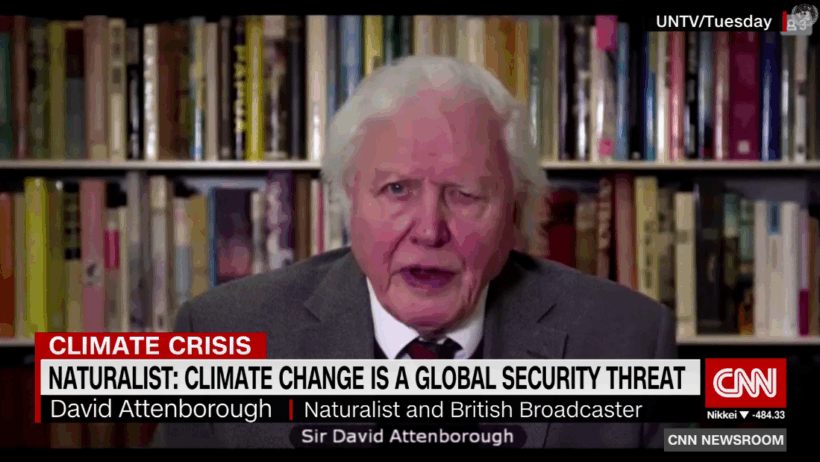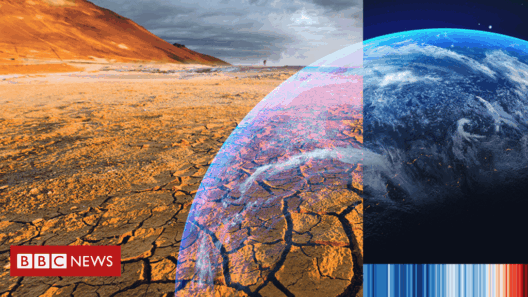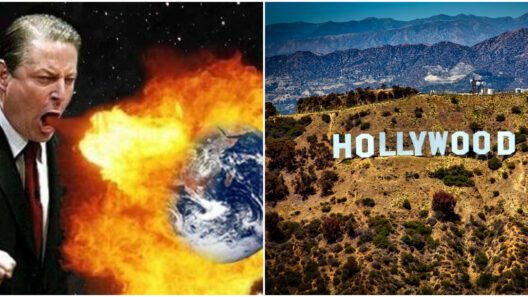Global warming, a phenomenon driven by anthropogenic activities, is increasingly being recognized not merely as an environmental issue but as a pressing issue of national security. This transformation in perspective underscores the interconnectivity between ecological stability and geopolitical integrity. The ramifications of climate change stretch beyond rising temperatures; they encompass a myriad of challenges that threaten the very fabric of society. This discourse will elucidate the various dimensions in which global warming jeopardizes national security.
To commence, the immediate and observable manifestations of climate change include extreme weather events. Superstorms, droughts, floods, and heatwaves are becoming more frequent and intense, as evidenced by rising global temperatures. Such climatic perturbations have direct implications for homeland security, amplifying risks related to disaster response and infrastructure strain. States with inadequate preparedness face the dual challenges of humanitarian crises and economic disruption. The prospect of failing to respond effectively to these natural calamities poses a significant threat to national stability.
Moreover, resource scarcity is intrinsically linked to climate change, particularly concerning essential commodities such as water and food. As temperatures rise, agricultural yields are projected to decline, exacerbating food insecurity, particularly in regions already beset by poverty. Water sources are also jeopardized, with many communities facing diminishing supplies due to altered precipitation patterns and increased evaporation rates. This scarcity can precipitate conflict among nations and communities competing for dwindling resources, thus elevating the risk of internal strife and international disputes. When nations are driven to desperation in the face of resource depletion, the ensuing discord can threaten not just regional but global stability.
Furthermore, migration patterns are likely to undergo radical transformations as communities are displaced by climate-related disruptions. This migration, often referred to as climate migration, can create sociopolitical tensions between migrants and host populations, thereby instigating xenophobia and societal fragmentation. As entire populations relocate to escape the ravages of climate change, countries must navigate the complexities of integration and service provision while simultaneously addressing security concerns. The rise of climate refugees is an unprecedented phenomenon that could engender significant challenges for national security frameworks worldwide.
In addition to direct threats from extreme weather, resource scarcity, and migration, climate change can exacerbate existing geopolitical rivalries. Nations that rely heavily on resource exploitation, such as fossil fuels, may find their interests increasingly at odds as the transition to sustainable energy sources accelerates. This shift can incite geopolitical tensions, as countries scramble to secure energy dominance, often using assertive tactics. Historically, competition over energy resources has catalyzed conflicts; thus, the same could occur as nations grapple with the realities of a warming world. The emergence of new environmental policies may inadvertently foster contention among nations struggling to adapt to these new paradigms.
Economic dimensions of climate change are also profound. The costs associated with disaster relief, infrastructure repairs, and adaptation measures are soaring, placing immense strain on national budgets. Additionally, industries reliant on stable climate conditions, such as agriculture and tourism, risk facing economic upheaval, which could lead to widespread unemployment and social unrest. Such economic vulnerabilities threaten to undermine public trust in governance and create instability, endangering the overall security of nations.
Moreover, the military and defense sectors are increasingly acknowledging the implications of climate change. Armed forces around the globe are reassessing their strategies and operational readiness in light of evolving climatic conditions. Rising sea levels threaten naval bases, while extreme weather can impede military training and deployment. The Department of Defense in various countries has identified climate change as a “threat multiplier,” one that exacerbates existing vulnerabilities and challenges traditional defense paradigms. The necessity for military adaptation to these realities constitutes a critical consideration for maintaining national security.
Policy responses must be anticipatory and holistic. Nations must craft comprehensive strategies that encompass environmental sustainability, economic resilience, and social cohesion. Investment in renewable energy technology is crucial, not only as a means to mitigate greenhouse gas emissions but also to create jobs and stimulate economic growth. Effective governance frameworks are paramount in ensuring that climate adaptation measures are equitable and inclusive, targeting the most vulnerable populations while fostering resilience within communities.
Furthermore, international cooperation is a necessity. Climate change knows no borders; thus, transnational collaboration is vital in addressing its multifaceted threats. Forums such as the United Nations Framework Convention on Climate Change (UNFCCC) provide platforms for dialogue and partnership, enabling nations to share resources and knowledge in the fight against climate-induced challenges. Diplomatic efforts must be reinforced to mitigate tensions that arise from resource competition and to promote collective security paradigms that prioritize environmental sustainability.
In summation, the implications of global warming extend well beyond environmental degradation. It represents a multifaceted threat to national security, influencing everything from disaster preparedness to geopolitical dynamics. As nations grapple with the challenges posed by climate change, it becomes increasingly clear that proactive measures and international collaboration are essential. This paradigm shift in understanding climate change not only underscores the urgency for action but also lays the groundwork for a more sustainable and secure future for all. Stakeholders, from policymakers to citizens, must recognize their role in combating this existential threat. The path forward calls for unity, innovation, and a resolute commitment to fostering resilience in the face of an ever-evolving global landscape.








